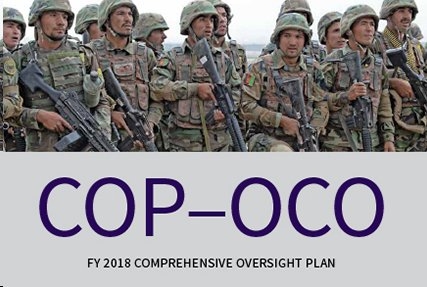US Slaps Crippling Sanctions on Iran: Clarion Project’s Joan Svirsky
 “I am authorizing the Treasury Department to further sanction the entire Islamic Revolutionary Guard Corps for its support for terrorism, and to apply sanctions to its officials, agents and affiliates,” U.S. President Trump said. “I urge our allies to join us in taking strong actions to curb Iran’s continued dangerous and destabilizing behavior.”
“I am authorizing the Treasury Department to further sanction the entire Islamic Revolutionary Guard Corps for its support for terrorism, and to apply sanctions to its officials, agents and affiliates,” U.S. President Trump said. “I urge our allies to join us in taking strong actions to curb Iran’s continued dangerous and destabilizing behavior.”
A previous designation enacted in 2007 had only sanctioned the IRGC’s Qods Force, the special forces unit of the Revolutionary Guards responsible for their extraterritorial operations. As noted by the Treasuring Department, the Qods Force provides support to a number of terrorist groups, including Hezbollah, Hamas and the Taliban; the IRGC, in turn, provides material support to Qods Force by providing training, personnel and military equipment for it.
The new designation “freezes the IRGC out of the U.S. financial system” by making doing business with the IRGC (and essentially the entire Iranian military) forbidden.
Also included in the new designation are sanctions against three Iranian companies as well as a Chinese company that does business with the IRGC.
The new sanctions are expected to hit the Iranian economy hard and make other countries reluctant to do business with the IRGC as well, since foreign countries that do business with the IRGC also would be liable to stiff U.S. penalties.
The IRGC owns and controls much of the Iranian economy, from oil production to businesses and manufacturing.
Although the designation — which is based on Executive Order 13224 instituted by the Bush Administration – falls short of designating the IRGC as a foreign terrorist organization, analysts say the effect in practical terms will be the same.
“I think of it as a distinction without a difference in terms of what the impact will be and how the Iranians are going to read it,” said Suzanne Maloney, deputy director of the foreign policy program at the Brookings Institution and a former State Department adviser on Iran, speaking to Vox.
At a press conference, Secretary of State Rex Tillerson explained the strategy. “There are particular risks and complexities to designating an entire army [as a foreign terrorist organization], so to speak, of a country where that then puts in place certain requirements where we run into one another in the battlefield that then triggers certain actions that we think are not appropriate and not necessarily in the best interest of our military,” he said.
In imposing the new sanctions, Secretary of the Treasury Steve Mnuchin stated, “The IRGC has played a central role to Iran becoming the world’s foremost state sponsor of terror. Iran’s pursuit of power comes at the cost of regional stability, and Treasury will continue using its authorities to disrupt the IRGC’s destructive activities.
“We are designating the IRGC for providing support to the IRGC-QF (Qods Force), the key Iranian entity enabling Syrian President Bashar al-Assad’s relentless campaign of brutal violence against his own people, as well as the lethal activities of Hezbollah, Hamas, and other terrorist groups. We urge the private sector to recognize that the IRGC permeates much of the Iranian economy, and those who transact with IRGC-controlled companies do so at great risk.”
Meira Svirsky is the editor of ClarionProject.org



